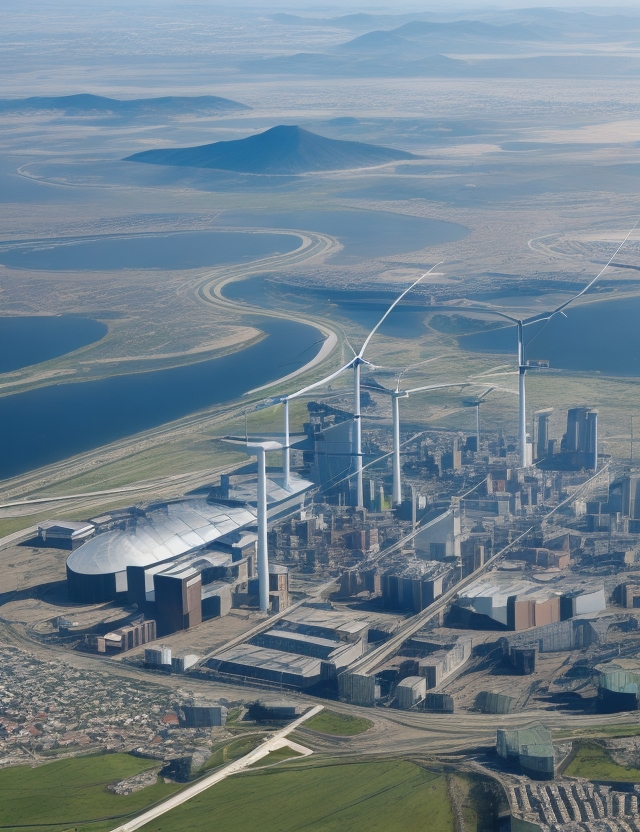In response to mounting climate change concerns, governments worldwide are reshaping energy policy to accelerate the transition towards a low-carbon future. This article explores recent regulatory developments, carbon pricing mechanisms, and the role of policy in driving investments and innovation across the energy sector.
Reshaping Energy Policy: Navigating the Just Transition to a Low-Carbon Future
 The specter of climate change looms large, casting a long shadow over our future. The scientific consensus is irrefutable: we must drastically reduce greenhouse gas emissions to avoid catastrophic consequences. This necessitates a comprehensive transformation of our energy systems – a transition from the carbon-intensive practices of the past to a low-carbon future powered by clean and sustainable sources. Navigating this transition effectively requires a bold new approach to energy policy, one that prioritizes not just environmental sustainability but also social equity and economic justice.
The specter of climate change looms large, casting a long shadow over our future. The scientific consensus is irrefutable: we must drastically reduce greenhouse gas emissions to avoid catastrophic consequences. This necessitates a comprehensive transformation of our energy systems – a transition from the carbon-intensive practices of the past to a low-carbon future powered by clean and sustainable sources. Navigating this transition effectively requires a bold new approach to energy policy, one that prioritizes not just environmental sustainability but also social equity and economic justice.
The current energy landscape is dominated by fossil fuels like coal, oil, and natural gas. These energy sources, while providing a reliable and historically affordable energy base, come at a hefty price – the long-term health of our planet. The continued use of fossil fuels is driving climate change, disrupting weather patterns, raising sea levels, and threatening ecosystems worldwide. The consequences are already being felt, with extreme weather events becoming more frequent and intense.
Reshaping energy policy for a low-carbon future requires a multifaceted approach:
- Decarbonization: This is the cornerstone of the transition. Policies must encourage a rapid shift away from fossil fuels towards clean energy sources like solar, wind, geothermal, and hydropower. Incentives for renewable energy development, research and development funding for clean energy technologies, and carbon pricing mechanisms are all crucial tools for driving decarbonization.
- Energy Efficiency: Reducing overall energy demand is an essential strategy. Policies promoting energy efficiency standards for buildings, appliances, and industrial processes can significantly curb our reliance on fossil fuels without compromising economic growth or living standards.
- Grid Modernization: The existing electricity grid was not designed for the widespread integration of variable renewable energy sources. Investing in grid modernization projects like smart grids and energy storage solutions is critical for ensuring a stable and reliable low-carbon energy system.
However, the transition to a low-carbon future cannot be achieved solely through technological advancements and economic incentives. It must be a just transition, one that acknowledges the potential social and economic disruptions that may occur. Communities reliant on fossil fuel industries face the risk of job losses and economic hardship as we move away from these traditional energy sources. A just transition strategy must address these concerns by providing:
- Workforce Retraining: Programs to equip workers in fossil fuel industries with the skills needed to thrive in the clean energy economy are essential.
- Community Investment: Financial support and economic development initiatives can help communities heavily reliant on fossil fuels diversify their economies and build resilience during the transition.
- Just Transition Funds: Dedicated funding streams can be established to support workers, communities, and regions impacted by the shift away from fossil fuels.
The journey towards a low-carbon future is not without its challenges. There will be vested interests resistant to change, technological hurdles to overcome, and the need for significant upfront investments. However, the cost of inaction is far greater. By embracing bold new energy policies that prioritize both environmental sustainability and social equity, we can navigate this transition effectively and secure a brighter future for generations to come.


